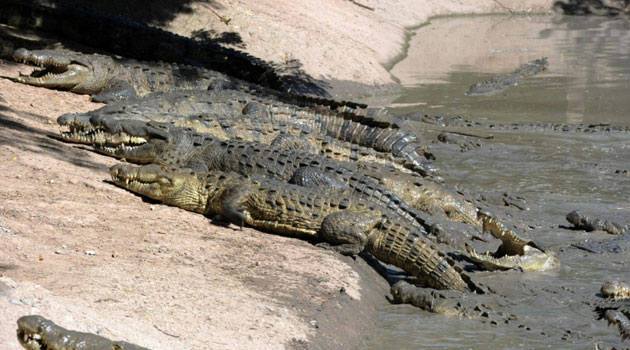
Cocodrilos Continental has told Honduran authorities the freezing of the Rosenthals’ assets led to the accounts used to pay the workers and buy animal feed being blocked/AFP
AFP journalists visiting the 30-hectare (70-acre) property called Cocodrilos Continental, in San Manuel near the city of San Pedro Sula, also saw seven scrawny lions kept in cages.
“The crocodiles and lions are dying of hunger, and we are too because we haven’t been paid the last two weeks,” said one worker at the entrance to the farm who asked to go by the pseudonym Jose.
“Forty animals have already died. They were taken away in boxes by trucks to be buried,” he said.
The farm is owned by the Rosenthal family, a powerful clan in Honduras with interests spanning banking, media, property, tourism, livestock and agriculture.
On October 7, the US Treasury Department said it was targeting the family’s 79-year-old multimillionaire patriarch, Jaime Rosenthal, his son Yani Rosenthal, and his nephew Yankel Rosenthal “for their money laundering and drug trafficking activities”.
It imposed an asset freeze on them and barred US businesses from dealing with them, which notably affected their Banco Continental. The bank, headquartered in San Pedro Sula, is being liquidated on orders of the Honduras’ Banking Commission. A newspaper owned by the family has also been shut.
Yankel Rosenthal was arrested in Miami by US authorities the day before the Treasury announcement.








































